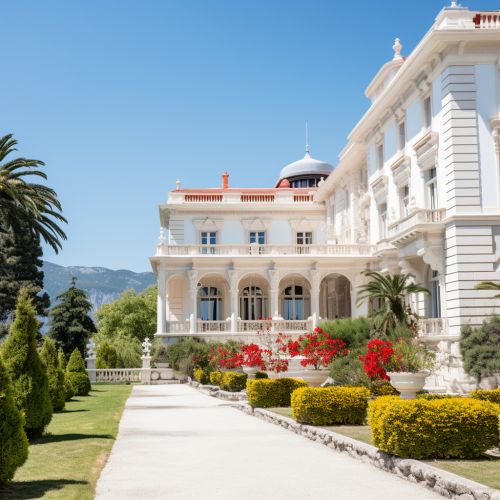Yalta Conference
Background
The Yalta Conference was a meeting of the heads of government of the United States, the United Kingdom, and the Soviet Union, represented by President Franklin D. Roosevelt, Prime Minister Winston Churchill, and Premier Joseph Stalin, respectively. The conference took place from February 4 to 11, 1945, in the Livadia Palace in Yalta, a resort city in the Crimean Peninsula. The conference was held towards the end of World War II when it was becoming increasingly clear that the Allies would be victorious.
Purpose
The primary purpose of the Yalta Conference was to discuss Europe's post-war reorganization. The leaders aimed to establish a post-war order, peace treaties issues, and counter the effects of the war. The conference was also a continuation of the strategy of military cooperation against Germany and Japan, following the successful Tehran Conference in 1943.
Agreements
A number of important agreements were reached at the Yalta Conference. These included the division of Germany into four occupied zones, the establishment of the United Nations, and the declaration of liberated Europe. The leaders also agreed on the conditions for the Soviet Union's entry into the war against Japan.
Division of Germany
The leaders agreed that Germany would be divided into four occupied zones, each controlled by one of the four victorious powers: the United States, the United Kingdom, France, and the Soviet Union. The city of Berlin, located deep within the Soviet zone, was also divided into four sectors. This division was a temporary measure, intended to last until a final peace treaty could be negotiated.
Establishment of the United Nations
The leaders agreed on the formation of the United Nations, an international organization intended to maintain international peace and security. The conference participants confirmed the principles of the United Nations Charter, which had been drafted at the Dumbarton Oaks Conference in 1944.
Declaration of Liberated Europe
The "Declaration of Liberated Europe" was a statement that promised the people of Europe the right to choose their form of government through democratic means. It was intended as a response to criticisms that the Allies were simply replacing one form of tyranny with another.
Soviet Entry into War Against Japan
Stalin agreed that the Soviet Union would enter the war against Japan within three months of Germany's surrender. In return, the Soviet Union was promised control of Manchuria and the territories that it had lost in the Russo-Japanese War of 1904-1905.
Aftermath
The Yalta Conference marked a significant turning point in the history of World War II and the subsequent Cold War. The decisions made at Yalta, particularly the division of Germany and the establishment of the United Nations, had profound implications for the post-war world order.
Criticism
The Yalta Conference has been criticized for its perceived appeasement of the Soviet Union. Critics argue that the agreements made at Yalta allowed the Soviet Union to establish a sphere of influence in Eastern Europe, leading to the Cold War.
Legacy
The legacy of the Yalta Conference continues to be a subject of debate among historians. While some view the conference as a necessary compromise in the face of a common enemy, others see it as a series of concessions that paved the way for the Cold War.


